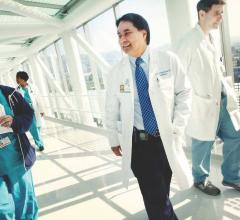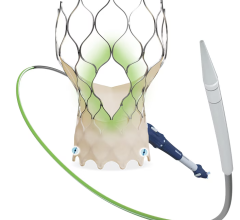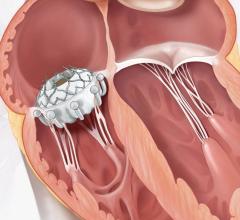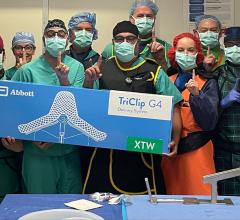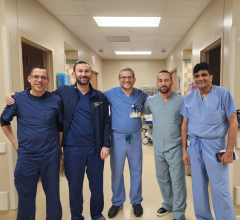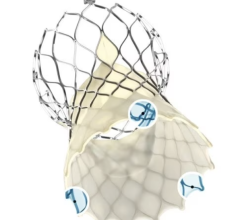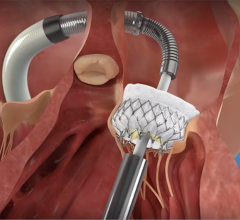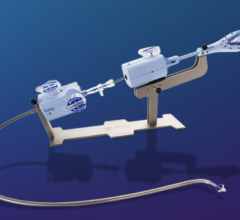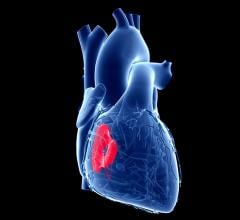September 2, 2015 — An investigational material known as Bioabsorbable Cardiac Matrix (BCM), designed to prevent cardiac remodeling in heart attack patients, had no significant effect compared to a saline placebo, according to a new study. The findings from the PRESERVATION I trial, announced at the European Society of Cardiology (ESC) Congress 2015, were “somewhat surprising and disappointing”, said study investigator Uwe Zeymer, M.D., from Institut für Herzinfarktforschung, in Ludwigshafen, Germany.
“Based on encouraging results in experimental studies and a previous pilot trial in humans, which showed a preservation of left ventricular dimensions after heart attack, we had expected to find a reduction in left ventricular enlargement and an improvement in clinical symptoms compared to saline control,” said Zeymer.
BCM is a liquid mixture of sodium alginate and calcium gluconate that can be injected into the coronary artery during percutaneous coronary intervention (PCI) in heart attack patients.
The liquid flows into the heart, where it reacts with ionized calcium that collects in damaged heart muscle, forming an absorbable gel. This gel acts as flexible scaffold, or “matrix”, that supports the heart during repair and then dissolves, explained Zeymer.
Previous studies have shown that injection of BCM prevents remodeling of the heart (changes to the shape, size and structure of cardiac muscle that occur after a heart attack), and the deployment procedure has been shown to be safe without any difference in ischemic or arrhythmic events compared to placebo, he noted.
The study included 303 subjects (from Australia, Belgium, Canada, France, Germany, Israel, Poland, Spain and the United States) who were randomized to receive an intracoronary injection of the investigational substance or a saline control.
For the primary endpoint, change from baseline in left ventricular end diastolic volume index (LVEDVI) — an echocardiographic measurement of remodeling assessed at six months — there was no significant difference between the two groups.
In addition, the groups showed no significant difference in any secondary endpoints including Kansas City Cardiomyopathy Questionnaire (KCCQ), six-minute walk test (6MWT), NYHA functional classification, time to cardiovascular death or non-fatal heart failure events or cardiovascular hospitalizations, or time to first rehospitalization due to any CV event.
The dropout rate was similar between those treated with the investigational substance and placebo (4 percent versus 6 percent), and there were no significant differences in serious adverse events between groups.
Zeymer said there are several possible explanations for why the study did not show better outcomes with the investigational material. “Potential reasons include selection of a patients with too large an infarct without any chance to prevent remodeling, or timing of the intervention- which might have been done too late. Therefore further studies are necessary to determine the optimal timing and target population for this innovative therapy,” he said.
The study was funded by Bellerophon Therapeutics Inc.
Zeymer has received honoraria for serving as member of the executive committee of PRESERVATION I.
For more information: www.escardio.org


 July 08, 2024
July 08, 2024 
